You always hear about people trying to get out of debt. They don’t want to be in debt, and to be honest it’s not something a lot of people want either. Which is why many of you will probably be happy to learn about debt resolution here (this can help you if you are in a bit of a pickle).
But then there’s me and I’m not trying to get out of debt.
I’m trying to get IN debt.
But I’m talking about good debt. Debt that earns me money, not crush me under a pile of increasing payments I can never hope to make. However, this isn’t always the case for everyone. They lookup how consolidating your debt is needed, and take the best advice they can get from the professionals.
I’m talking about mortgage debt on cash flow rental properties.
The Best Debt in the World
Before writing this article I traveled the world examining all kinds of loans and debt, including the payment terms and interest rates.
But I do know what we have in the United States housing industry is absurdly good and you can’t get it in other industries or countries.
Here is a pile of money, just be sure to pay it back in 30 years ok?
Well a 30 year loan must come with a crazy interest rate right? No, it is incredibly low due to a ton of confidence in continued demand for housing and the US dollar, great price discovery, and government handouts. I can even find help from other services, like those seen on Dustin Dimisa’s Facebook page for instance.
Luckily we don’t have to understand exactly why, we just have to jump on a great deal when we see it.
I’m Not Going to Pay it Off
Here’s the important twist – I’m not going to pay it off! If I had to pay it off, I surely would be looking towards something like crowdfunding sites like GoFundMe for answers on how to get out of debt as it seems people have effectively used the platform for this purpose in the past.
Don’t misread that though. Payments will be made, but not by me, and not with the intention of paying off the loan as soon as possible.
You see, the property is rented out and generates a positive cash flow. The tenant pays me around $1000 a month and I give $600 of it to the bank. The payment is technically from me, but I’m just passing along the tenant’s money.
Unlike your credit card, it is actually a good idea to pay the minimum every month. Any extra money gets reinvested elsewhere, taking full advantage of the cheap leverage.
Heck, I don’t even plan on paying it off within 30 years. While I’m still young and working, I’m going to refinance my equity into more properties.
My Debt in 2017: $134k to $252k
One of my greatest accomplishments in 2017 was going from $134k in debt to $252k.
It didn’t take too much work, just 2 actions: a cash out refinance and purchasing a new property.
I now have mortgage balances of $97k, $82k, and $71k.
I collect rent payments each month of $1000, $1020, and $1100.
I make monthly mortgage payments of $760, $560, and $598.
$3120 comes in, $1918 goes out. The rest covers other expenses like property management, repairs, and expected vacancy. Anything left over I get to keep!
Isn’t All That Debt Risky?
What number determines the risk of a loan – the principle left to be paid or the monthly payment amount?
Let’s say someone gave you a $1M loan over 100 years at 3%. What is the scary part, that you have to pay off $1M over the course of 100 years? Or that your payments are $2632 a month?
Taken to that extreme, it is obvious that the monthly payment is what matters. If you can consistently make the payment, paying down the principle over many decades will easily happen.
So the question of risk for me – can I make $1918 in mortgage payments if s hits the fan?
Yes. I should have rent money coming in. I have several months of cash reserves in case all properties go vacant at the same time. I have a job that allows me to save additional money. I have other assets I could sell in the worst case scenario to continue making payments.
Why Do it Though?
If I can stay in the game for decades, I’ll make a killing on leveraged appreciation even if it is just at the rate of inflation.
I put down 20% of the money for a rental property, I get 100% of the appreciation benefit. Call it 3% a year.
Since it is leveraged 5x, I get a 15% return on appreciation alone! Then you add in the other benefits of the tenant paying down the principle, small amounts of cash flow, and tax benefits.
That’s why I believe you can earn 20-25% a year on a sub-$1M portfolio while limiting risk. It takes a little effort, but is well worth it!
How Much Good Debt Do You Want?
Don’t think of the principle balance though. Think of it as the monthly payment.
The payment is a function of the length and rate of the loan. As we saw, both of those are unbelievably in your favor for a rental property mortgage.
What if the debt came packaged with an investment that produces cash flow? Do you think cash reserves, other income and assets would make monthly payments safe?
Do you think there is such a thing as good debt?
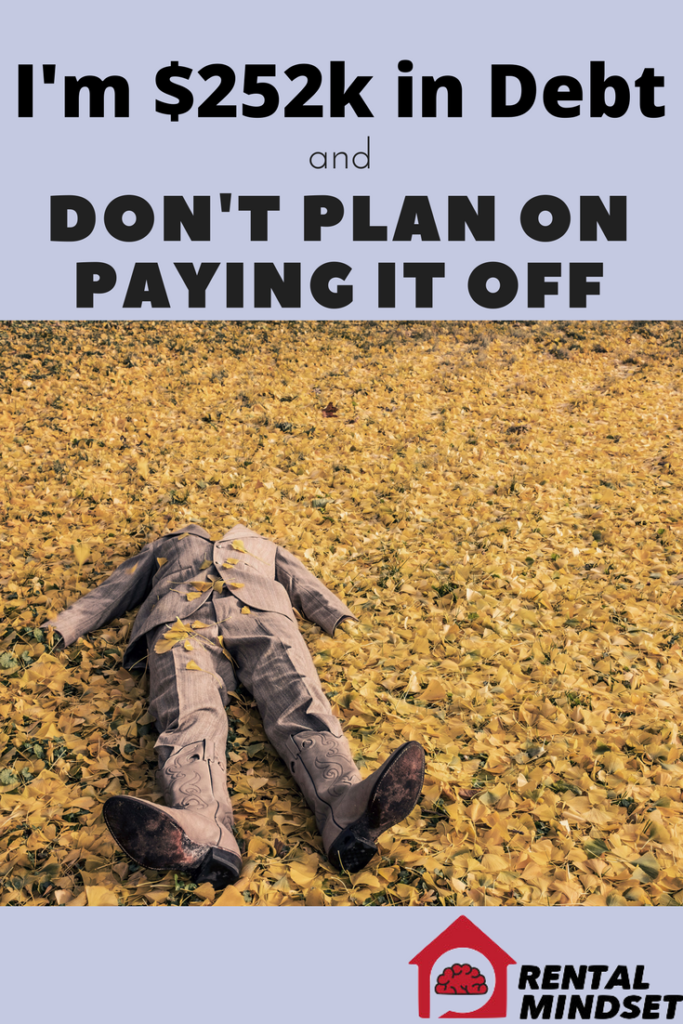



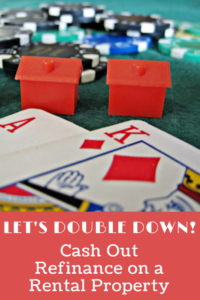
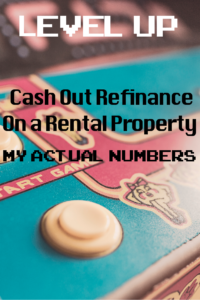
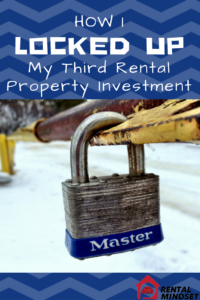
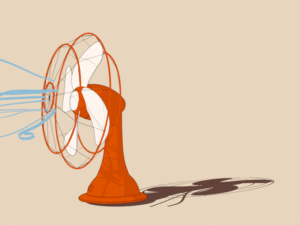
Very good. I have almost 400k in debt personal and one rental (which I make no money since its rented to a family member) but I don’t spend maintenance they have to. I was on contract with a duplex 2 month ago almost ready to pull the trigger but I backed out, I went and used the money into my business. My main concern is because I believe there is a correction coming in a year or two… Even if they stay neutral for a few years that would allow me to save more and hopefully buy then. I am more into paying off the mortgage now. But if my income goes up which is the plan then I will use a hut more leverage like you. Why ? Because since I won’t be able to get a high paying job there is always uncertainty with your own business. So, I must be in par with myy income at the moment and even if I make 100k more a year act like ij only made 25k more, that’s been myh mentality for a while. Either way I am turning 30 this month. In the next ten years I plan to have at least 5 homes pay off or a commercial building. Or transition from the 5 pay home into commercial (more volatile ) but less work if the tenants stay for years.
Thanks for your thoughts! That is quite a gift you are giving to your family member, wonderful you are in a position financially to make that happen. That’s the whole point of having wealth.
Timing markets is tough. It has been proven people get this wrong over and over again. I think you are right, but who knows. That’s why I purchase right now in more linear markets like Memphis – the swing down will be very small anyways. Hardly matters if there is a dip in 2 years. Then later if I know we are closer to the bottom, I can buy in more aggressive areas that can still cash flow (when there are screaming deals) like Phoenix or Dallas.
I 100% agree with you in this regard. My mortgage is the only debt I will happily leave alone. This is coming from someone who doesn’t pay interest on anything else. I could pay my house off right now, but I’m not going to. The interest is negligible in the grand scheme of things.
I’ve been in my house 11+ years, and I don’t know where my next job is taking me – Dallas, Chicago, SLC – who knows, but it most definitely doesn’t make sense for me to pay it off now.
If/When I rent it out, I only plan on having the difference between what the tenant pays – mortgage payment + expenses. If I plan for that, I won’t be disappointed in thinking I have to pay off the mortgage just for increased cash flow.
Exactly – it is such cheap money, it hardly ever makes sense to pay it off early.
If you do rent it out eventually, will your rent collected – mortgage payment – expenses be a positive number? Often people live in houses that don’t necessarily make good rentals and rent it anyways. In that case a 1031 exchange into true cash flow properties will reduce the risk and margin of error, even though it will take a little bit of effort.
Yes, I plan on making sure it is profitable. I won’t rent it out unless I can get at least 1%/month on the sale price. The amount the tenant would pay would be about double my mortgage each month. If I factor in a property manager I am still in the green. Though, I would have to consider the costs that would accrue from upkeep, but I don’t have any stats on that yet.
My house is really good for renting because it’s just the right size (about 1300 sq ft) for single or family occupant(s). It’s in a growing city. Also, the houses in the neighborhood have been rented out consistently – like the one next door to me. Do you think I’m thinking about this right?
I like how you think. I would do the 1031 exchange for sure if I didn’t think it was a good cash flow property, but I lucked out!
Yes, sounds like you have put some thought into it! It is more an issue when people back into it as what they think is their only option for getting into rentals.
Yay, thanks for the input!
I love this.
In 2013 we had around 650K in mortgage debt. It’s now down to about 500K. This includes our primary residence. That’s quite a bit of leverage.
I think it still matters when you buy. The condo I bought to live in back in 2005 was around $280K. It briefly appreciated to $310-315K. If it were appreciating at 3% a year (on average) it would be worth around $400K today. Of course the crash happened. It’s worth $245K today.
I understand the idea of a long-term focus, but it’s year 12 now and we’d need about a 62% appreciation next year to get to that 3% long-term average. We may be looking at another 10 years to get an appreciation of 1%. Another factor to consider is that the property will have aged 22 years in that time. It didn’t seem too bad to buy a property that was 30 years old at the time, but in 10 years it will be 50+ years old. I wonder if the demand is there for housing that old. We can make it as modern as possible, but there will always be some legacy stuff from the 1970s built in.
My wife’s condo, bought in 2002, is similar story.
My message here is to not discount the fact that there really might be bad times to buy property… and it can make a great long-term impact.
Almost everywhere in the country is well past the pre-2008 crash prices, so I feel this is pretty unusual. Heck some of the more boring middle America cities that cash flow investors like didn’t even touch a 25% drop peak to trough that you are still at!
I’m certainly colored by my experience of home prices in California and renting in San Francisco. But man is it different for these $100k purchase, $1k/mo rent 3×2 single family homes in places like Memphis. And while it isn’t ideal to purchase at the top there, it doesn’t hurt nearly as bad as on the coasts.
For regional context, my condo was about 15 miles outside of Boston and my wife’s was about 30. I think Boston and even the suburbs have done very well in recent years.
Perhaps we just got caught in a bad pocket or condos didn’t do as well. I look at my mother’s house about 8 miles from Boston and it barely went down in the crash and it has appreciated significantly.
So maybe my story has a silver lining… even if you pick the wrong property and lose out on all that yummy appreciation, just riding it out can still provide good cash flow in the long haul.
Thanks for the additional context – I would have certainly guessed it would have rebounded just fine. My take away is that things don’t always go according to plan.
Condos can also be tough because of HOA and other things largely out of your control.
Just closed on a tri-plex a month ago and now have $819k of mortgage debt spread across 16 units. I have tried to keep a 50/50 ratio on units with no debt compared to units with debt but this put me. The triplex put me at 6 units with no debt and 10 with but on the debt ones, I always do 25% down and 15 year mortgages. Even with 15 year mortgages they still cash flow and having the 6 with no debt helps if ones go vacant. My goal is to have them all paid off by 55 or 14 years from now.
It will be nice to have 16 units with no debt at 55.
Keep up the good work Brian – really like the blog!
Very impressive portfolio!
Curious to what you think of this idea – do 30 year mortgages on all financed properties and pay the minimum on most. But choose 1 to make additional payments on until it is paid off.
For the minimal rate difference between 15 and 30 year mortgages, it sure boxes you in and makes things riskier (the monthly payments are way larger if you hit hard times).
Not that it would make sense necessarily for you to refi when you are trying to pay them off, just curious what you think about that idea!
Interesting idea but that is why I have always tried to keep the 50/50 ratio so that if one or two go vacant, there is still income coming in collectively to cover all debt service on the 16 units.
So what do you think is the optimal age to flip the switch and start to ensure the debt is paid off completely or are you planning on carrying the debt into retirement in your 60’s? I know a long way off but would be curious about the answer.
That’s a really good question. It is part risk, but part hassle. I suppose from a pure numbers standpoint, it would point towards staying fully leveraged. But not if the rent is your main source of income, you’d have to recalculate what it would take to survive any bad times.
Me? I’m more worried about the hassle into my later years. Fewer properties to deal with, even if some or all have mortgages. But it won’t change any of my actions today.
I think he should do 30 years mortgages and pay off one at a time every 2 or 3 years from the difference of the 15yr mortgage. The difference of interest between 15yrs and 30 yrs is so little that makes no sense to get a 15 yr mortgage. You could still have 30 yr mortgages and pay them off in 5 years…
I got a mortgage 5 years ago of 182k and by the end of this year I would be in the 60s k so, I will pay off that in a few more years…
That’s awesome that you have such portfolio of 16 units. If you did the 15 yrs you are probably safe and maybe have a high paying job to sustain it in a worse case scenario. Plus, I understand some people get eager to pay debt off like me. But, if they started doing 50 yr mortgages then I would jump into them, when properties get stagnated in the USA it will happen, the norm will start at 35 yrs then 40 etc… to drive prices up.
Well put! That’s what I was trying to say, you just said it more eloquently. I will also note – it probably isn’t worth doing a refi to switch the 15 yr mortgages to 30 yr. But if doing over again, that’s what I’d rec.
That’s an interesting thought on the 50 year mortgages. I would be surprised if it happened, but I suppose it is possible. And yes, I would jump on the chance. Same with interest only loans, where you don’t pay down any principle. Right now they have a 5-7 yr adjustment like an ARM, but perhaps down the line the interest only portion will be much longer.
I think there’s a significant behavioral finance question with the 15 vs. 30 year mortgages. My readers pointed that out when I asked in 2011. They said that more than 97% of people who get 30-year mortgages and attempt to pay them in 15 years fail to do so.
One of the benefits that no one ever talks about with real estate and mortgages is forced savings. The 15-year mortgage forces me to put more aside now. The alternative could be to add more properties, but that’s not an option due to the “hassle” factor. We’re busy enough with other businesses, kids, careers, etc. The math may point to getting lots of 30-year mortgages, but scalability becomes a factor.
I guess my point was if the cash flows support a 15 year mortgage why not? To have the mortgages paid off at 55 is a good thing to me not a bad thing but it seems everyone here thinks the opposite. It is also part of the reason I have 6 unleveraged because they can help support the other ones if ones go vacant not my “high” paying job as someone said. The properties are all self supporting.
I guess at the end of the day to each their own.
Love this article! We are $1.8 Million in debt and will be over $ 2.3 Million in debt once we finish building 4 new units. Cool thing is this debt is being chipped away by our tenants, and after all expenses we still earn $106k net a year for having it, not to mention all of the equity which is just an added bonus.
So I see leveraged mortgage debt that is being paid by tenants as an amazing tool to build wealth and passive income.
Jennifer, thanks for reading. I’ve been over on your website – impressive portfolio you’ve built up!
Leverage really is a great tool. I’m often asked (see above) – how much is too much? You are an example of someone with a $2M+ in good debt, so you might be better equipped to answer it. Are you thinking of paying off the mortgages or continuing to use leverage as a tool moving forward? (Which as long as there is a large cash flow cushion, doesn’t have to be risky)